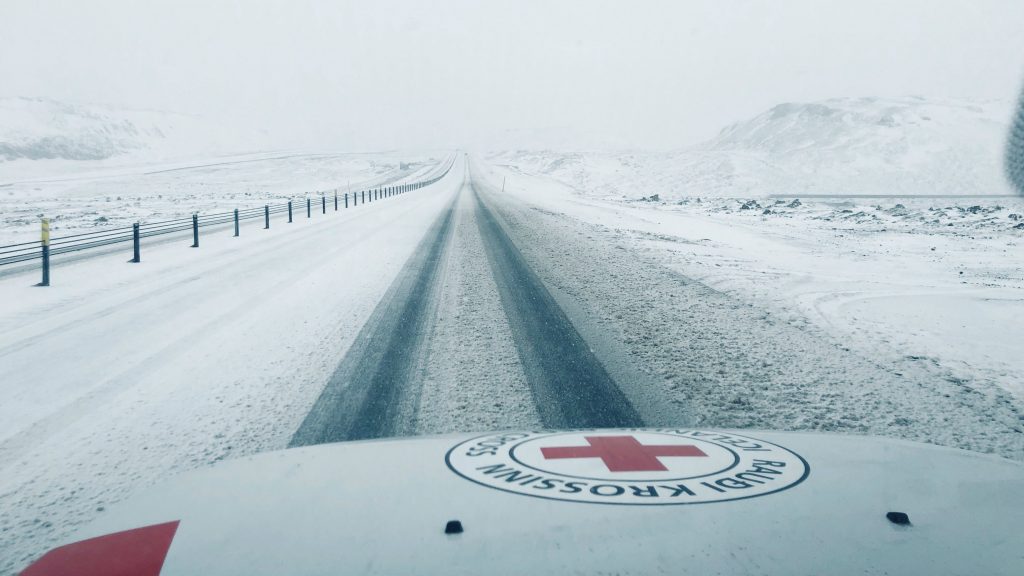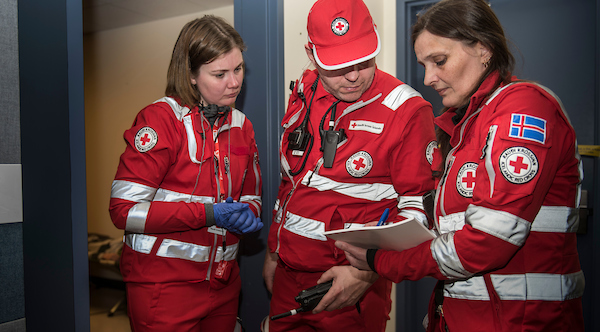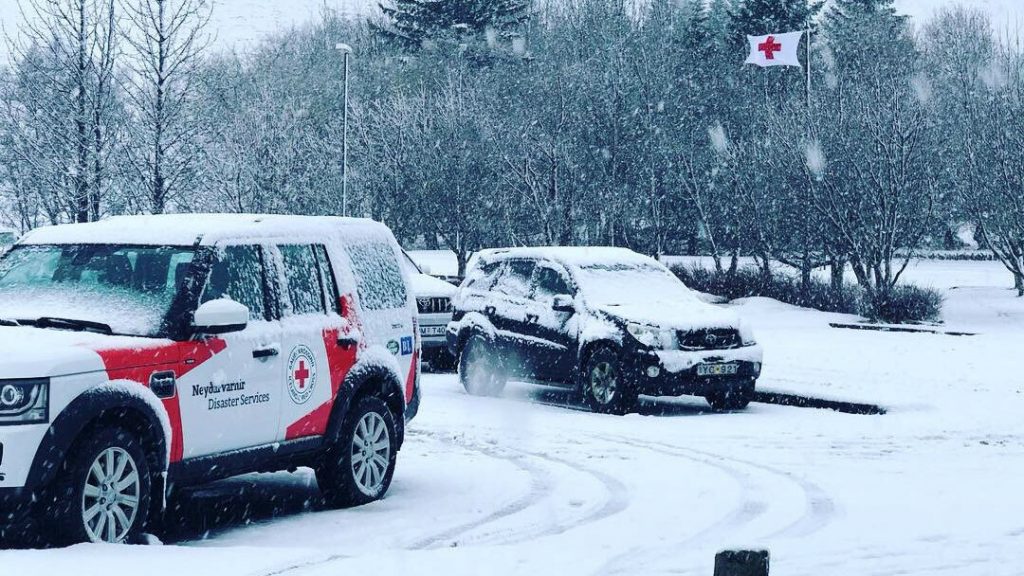Iceland getting back to normal after being savaged by freak winter storm

Iceland is getting back to normal after being savaged by a freak winter storm last week, with the Icelandic Red Cross closing their last emergency shelter in Tjörnes, a peninsula in the country’s northeast.
The shelter closed Sunday after electricity in the region was restored.
Huge swaths of Iceland in the North and East had the power knocked out on December 10 after a winter storm raged across the country.
Sleet along the coast in the North also caused electrical infrastructure to ice up, causing it to “…go down like dominoes” according to one Icelander interviewed by Eye on the Arctic last week.
The strongest wind speed measured was 58.2 meters per second in the southwestern part of the country.
Situation still unstable in Hvammsstangi

In all, the Icelandic Red Cross opened eight emergency shelters across the country.
“Volunteers met with people there, provided psychosocial support and checked if people in farms were okay,” Brynhildur Bolladottir, the Icelandic Red Cross’s communications manager told Eye on the Arctic in an email exchange on Monday.
“At most emergency shelters people only came for a cup of coffee, warmth and chat.”
An exception was in Dalvik, a village of around 1400 people in northern Iceland, where 50 people ended up staying in an emergency shelter for two nights when it became too cold to stay in their homes after the power went down, Bolladottir said.

As of Monday afternoon local time, electricity still remained unstable in Hvammsstangi, a village of around 582 people in northeastern Iceland.
Bolladottir said the Icelandic Red Cross was surveying the situation and was prepared to reopen emergency shelters if necessary.
Write to Eilís Quinn at eilis.quinn(at)cbc.ca
Related stories from around the North:
Canada: What are the northern lights?, CBC News
Finland: Finland to headquarter Europe’s new atmospheric research center, Yle News
Greenland: Evidence of powerful solar storm which occurred 2,600 years ago found in Greenland ice, CBC News
Iceland: Large swaths of Iceland still without power Wednesday after winter megastorm, Eye on the Arctic
Norway: NASA and Norway to develop observation station in Arctic, The Independent Barents Obsever
Russia: Scientists surprised to discover meteor exploded over Bering Sea in December, CBC News
Sweden: Meteorite from Arctic Sweden fetches thousands at auction, Radio Sweden
United States: New map shows what Bering land bridge looked like 18,000 years ago, CBC New



